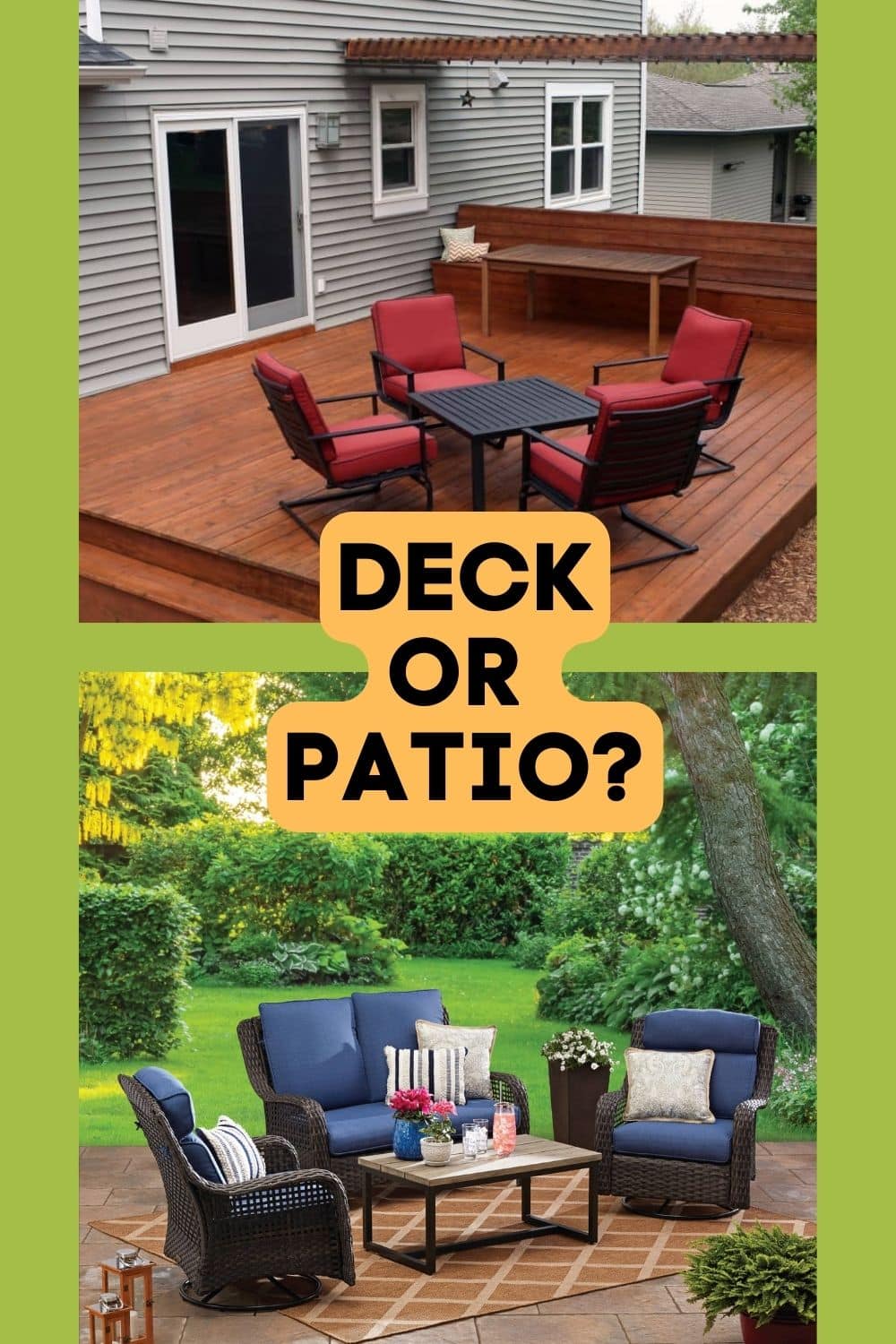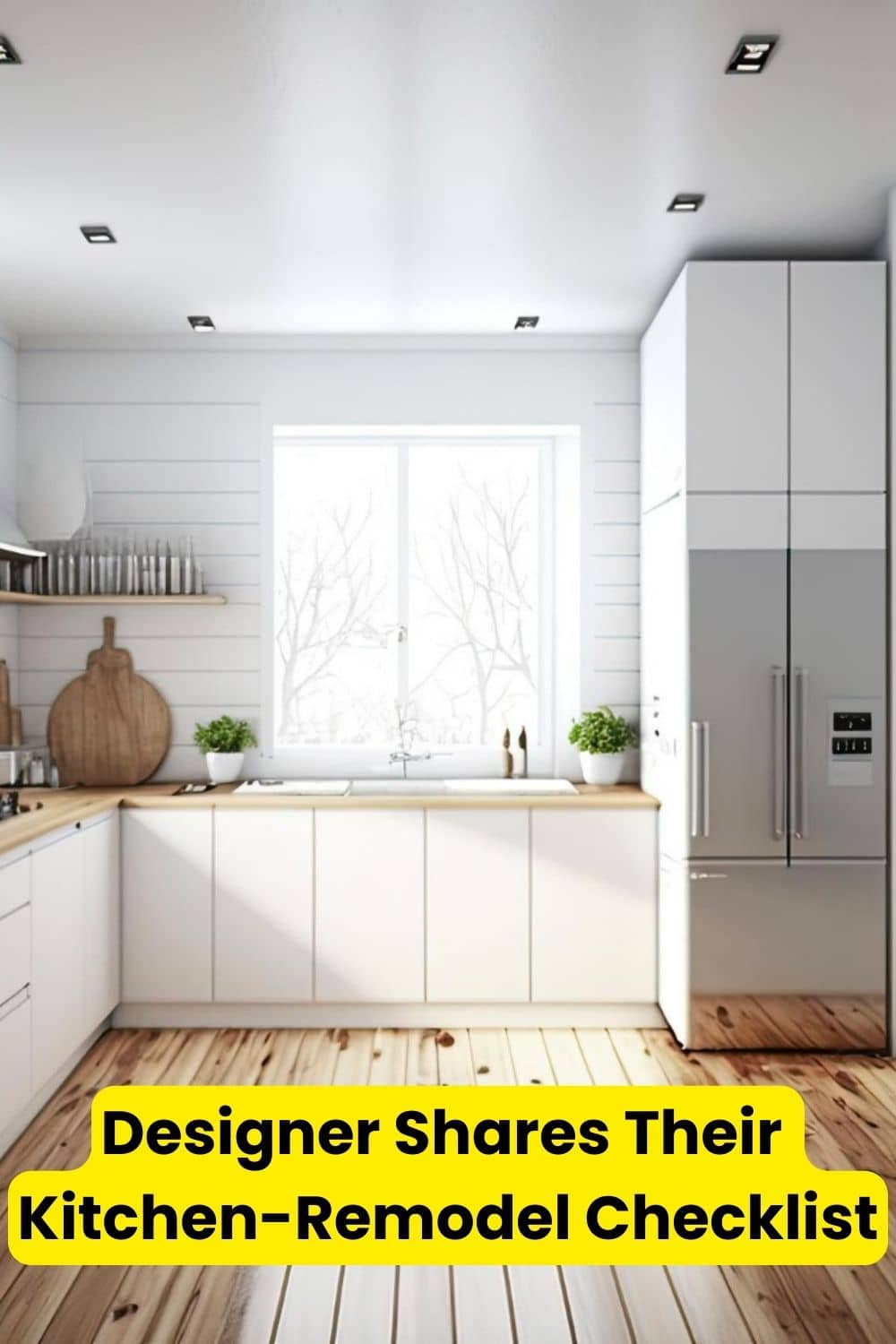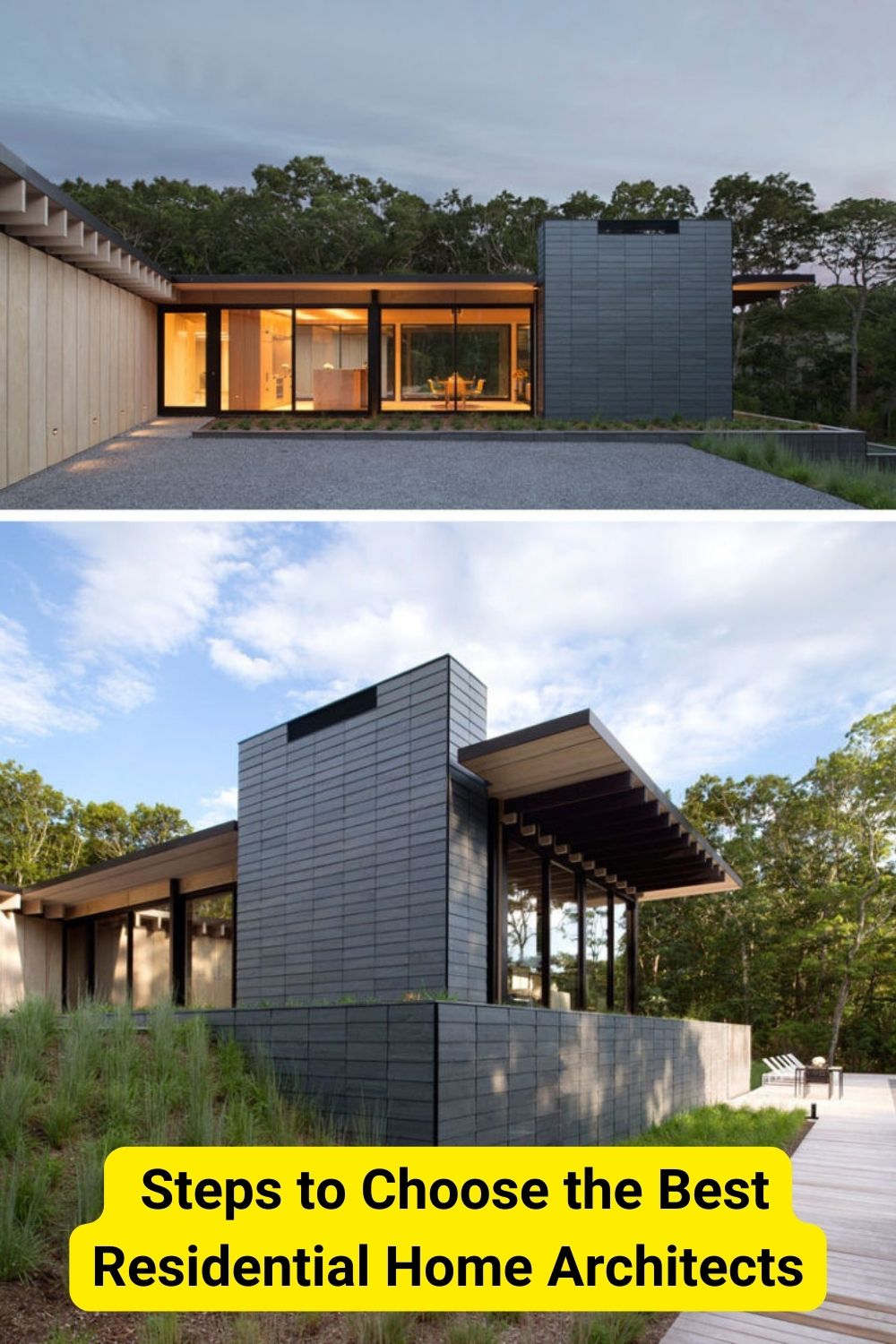Decks and patios are great ways to maximize your outdoor space. Both are great for entertaining or simply decompressing outdoors. They also both add home value in most cases. The two home-addition terms are used interchangeably, but there are some differences between them.
This article will explain the differences, then dive into the pros and cons of each to help determine which is the best option for you.
What is the Difference Between a Patio and a Deck?
While the two outdoor features often have similar purposes, there are some major differences between the two — examples include height, relation to the house, cost, and materials.
Pros and Cons of a Deck
Like most things, there are upsides and downsides to a deck.
Deck Pros
- Decks offer a great view: Since decks are raised from the ground, they can provide immaculate views. This is especially true for those who have tall privacy fences;
- Decks have a higher return on investment (ROI): Decks have one of the best ROIs out of any home improvement project — averaging around 70% return. The cost to build a deck depends on where you are located, the cost of materials, and who builds the deck, but you can generally get a good idea of the value it will add by using online remodeling calculators;
- Decks are viable on uneven ground: Uneven ground can eliminate many possibilities when it comes to your home. Leveling may not be an option, and if it is, this is generally a costly venture. The good news is that you can build a deck on uneven terrain. The support beams underneath your deck can be cut to fit the exact grade of your landscape;
- Decks are better for hot weather: Depending on the material used, decks are generally better for hotter months. Wooden (and wood alternatives like vinyl or composite) take on less heat, so it is still comfortable to trot around barefoot during hot summer weather.
Deck Cons
- Decks are less likely a do-it-yourself (DIY) project: More and more people are tackling DIY projects, but decks are better left to the professionals. One small mistake could lead to a costly injury. Additionally, decks often require special permits and inspections that local experts like deck builders in Mechanicsburg, PA are more attuned to;
- Decks cost more to build: Deck materials — and potentially added labor costs — are generally more expensive than patios are. Although this is not exclusively true. There are several cost considerations;
- Decks can have more maintenance: Wood breaks down faster than cement, concrete, or stone patios do. Every few years, you will likely need to sand down and refinish your deck to make sure the wood is in good condition;
- Decks have weight limits: Decks have weight limits because they use support beams. This can prevent you from having too many people over or too many features like hot tubs, bars, fire pits, and other entertainment staples. As a general rule of thumb, most decks can hold 100 lbs per square foot — but it is better to be safe than sorry.
Pros and Cons of a Patio
There are both advantages and disadvantages to patio additions. We’ll cover both.
Patio Pros
- Patios offer greater privacy: Patios are even with the ground, so there is more privacy for those interested in that;
- Patios are DIY-able: Patios do not generally require any permits or special inspections. They are a more manageable project to tackle yourself. Since they are on ground-level, they don’t need to be as precise;
- Patios are more affordable: Pouring concrete, cement, or laying stone is generally cheaper than deck costs — this is especially true if you choose to DIY;
- Patios have great longevity: Concrete, cement, and stone withstand time and weather better than wooden decks. They also require less ongoing maintenance.
Patio Cons
- Patios must be on even ground: Patios are essentially non-viable for uneven terrain. If you have a slope, the concrete cement will not dry well. If you still choose to do so, note that the slope can also lead to faster erosion and breakdown;
- Patios retain more heat: As mentioned above, the materials used to make decks typically absorb and retain less heat than the materials used to build a patio. Barefoot summers may not be a thing if you have a patio;
- Patios are susceptible to cracks: Weather fluctuations can lead to cracks in your patio. Replacing it can be costly, and minor fixes like levelers are not always pleasing to the eyes;
- Patios can be dangerous during cold weather: The materials used to make patios are more susceptible to ice build-up, so there are more slip-and-fall risks.
Final Thoughts
The best option for you depends on your personal preference and your landscape. If you prefer privacy, go with a patio. If you want views, go with a deck. Carefully consider what would work best for your pets, family, and entertainment needs.





Leave a Reply